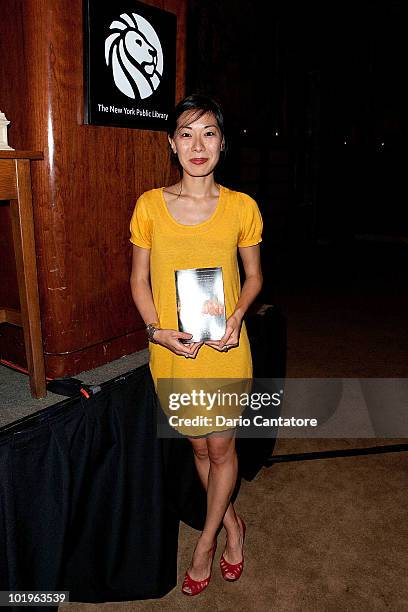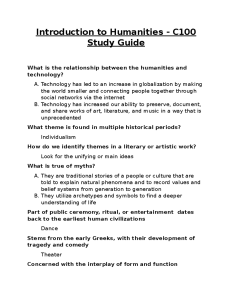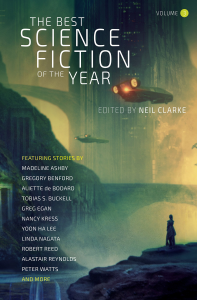Katie Kitamura, the celebrated novelist and recent Guggenheim Fellow, has captivated readers with her latest work “Audition,” which delves deep into the nuances of performance, privacy, and emotional authenticity. With a backdrop of a family ensconced in a New York City apartment, Kitamura’s storytelling draws inspiration from the horror genre, channeling unsettling themes that are both engaging and relatable. In a recent interview, she shared insights into her writing process, emphasizing her desire to explore the uncanny aspects of everyday life while providing a fresh take on middle age. As she prepares for her upcoming discussion at Harvard, Kitamura reflects on her unique narrative style and the echoes of horror that resonate throughout her work. Her ability to intertwine personal and psychological elements beckons readers to consider the complexities of human relationships, as articulated through her previous novels and her approach to fiction.
In the realm of contemporary literature, Katie Kitamura has emerged as an influential voice, particularly noted for her exploration of identity and the subtle dynamics of family life. Often weaving elements of suspense and the uncanny into her narratives, Kitamura’s works resonate with those interested in psychological depth and family tensions. Her latest novel, “Audition,” serves as an intriguing examination of artist performance and the intersections of reality and illusion, providing layers of meaning that extend beyond the page. As she engages with audiences in conversations about her craft, including her inspirations drawn from the genre of horror, Kitamura invites readers to reflect on the familiar yet eerie aspects of their own lives. The conversations surrounding her writing not only connect to themes of art but also draw valuable insights into the writing process itself, making her work a significant contribution to modern fiction.
The Evolving Genre of Katie Kitamura’s Writing
Katie Kitamura has consistently explored the boundaries of genre in her literature, with her latest novel, “Audition,” engaging in a conversation with horror. This evolution demonstrates her ability to blend elements of psychological thrill and family drama, creating a narrative that captivates readers from start to finish. Unlike traditional horror novels that rely heavily on supernatural occurrences, Kitamura’s work emphasizes the eerie undertones of human relationships, transforming everyday situations into sources of suspense and unease.
In “Audition,” Kitamura takes a thoughtful approach to the horror genre, positioning her characters in unsettling circumstances that reflect deeper fears of the unknown. By channeling inspiration from iconic horror literature like “Rosemary’s Baby,” she crafts a world where the characters’ perceived realities are questioned, leading to moments of profound tension. This unique interpretation of horror invites readers to examine their own experiences of fear and alienation, proving that often, the most chilling elements arise from within.
Katie Kitamura’s Insight on Performance and Privacy
One of the intriguing themes in Katie Kitamura’s work is the concept of performance in daily life. In our interactions, whether in relationships or professional settings, we often wear masks that hide our true selves. In her novels, Kitamura captures these nuances by presenting characters who grapple with their identities and the roles they play. Through her central character in “Audition,” she explores how the act of performance can become both a tool for communication and a barrier to genuine connection, raising questions about intimacy and the inherent privacy each individual possesses.
Kitamura suggests that true understanding within relationships requires a certain level of privacy; not everything needs to be laid bare between partners. This perspective challenges the conventional belief that total transparency leads to stronger bonds. Instead, Kitamura argues that preserving some aspects of ourselves is vital for maintaining healthy relationships. The characters in her narratives often find themselves caught in this tension between what they reveal and what they keep hidden, resulting in a rich exploration of human psychology and social dynamics.
The Influence of Pandemic on ‘Audition’
While discussing her latest work, Katie Kitamura reflects on how the pandemic inadvertently shaped the narrative of “Audition.” Although the story does not explicitly mention masks or quarantine, the themes of confinement and increased familial proximity draw parallels to the global experience during lockdowns. Kitamura’s keen observation that a small apartment housing multiple family members creates an environment ripe for psychological tension mirrors the tension many faced in real life during the pandemic.
This subconscious reflection of contemporary society not only enriches the narrative of “Audition” but also highlights Kitamura’s ability to weave current realities into her fiction. As she notes, the socio-political climate inevitably influences writers, and her work encapsulates this phenomenon. Readers find themselves resonating with the unsettling feeling of uncertainty that permeates the book, stemming from the shared experience of navigating life during a pandemic.
Exploring Horror Inspiration in Kitamura’s Work
The horror inspiration that permeates Katie Kitamura’s “Audition” stems from her exploration of the uncanny, drawing from literary giants such as Shirley Jackson and Ira Levin. Kitamura’s portrayal of middle-aged characters facing unsettling truths about their identities and relationships illustrates a modern iteration of horror that diverges from conventional tropes. By focusing on the psychological aspects of fear—the anxiety over familial bonds and the shifting perceptions of those we think we know—Kitamura carves out a distinctive niche within the genre.
Through her writing, Kitamura elevates horror beyond mere frights, delving into the psychological implications of domesticity and the unknown. Moments of uncanny dread arise not from external threats but from the internal conflicts of her characters, leading readers to confront their insecurities and fears. This innovative approach to horror invites a profound understanding of how the mundane can become terrifying, ultimately blurring the lines between reality and fiction.
Katie Kitamura’s Writing Process and Philosophy
Katie Kitamura’s writing philosophy centers on the significance of language and its power in shaping narratives. In her work, she blends a deep appreciation for language with a rigorous writing process that emphasizes clarity and precision. Kitamura believes that the act of writing fiction is not solely an artistic endeavor but rather a vital tool for understanding reality and imagining new possibilities. Her engagement with complex themes of identity and performance is a testament to her thoughtful approach to storytelling.
Moreover, her experience as a Guggenheim Fellow—an opportunity recognizing her contributions to literature—attests to her dedication as a writer. Kitamura’s ability to articulate the intricacies of human relationships through engaging prose demonstrates her mastery of the craft and her belief in the need for compelling narratives that reflect societal complexities. This commitment to exploring the human experience is paramount in her creative process, enabling readers to connect deeply with her characters and their struggles.
The Power of Storytelling According to Katie Kitamura
In times of crisis, Katie Kitamura emphasizes the importance of storytelling as a means of connection and understanding. Addressing the current socio-political climate, she asserts that writing fiction is not just an escape, but a necessary engagement with reality. During her interviews, such as at Harvard, she encourages young writers to appreciate the power of literature in shaping societal discourse. This reflects her belief that novels can challenge dominant narratives and provide fresh perspectives, which is particularly relevant in today’s world.
Kitamura asserts that the written word possesses the ability to unite individuals and foster empathy. As she teaches writing at New York University, she inspires her students to harness the transformative potential of fiction. She argues that engaging in storytelling allows both writers and readers to navigate complex emotions and ideas, ultimately serving as a form of resistance against oppression. Through her work, Kitamura champions the necessity of storytelling, affirming that it remains a crucial element in the fight for meaningful change.
Katie Kitamura’s Engagement with Literature and Art
Katie Kitamura’s passion for literature is evident not only through her writing but also her role as an educator. As a professor at New York University, she fosters a creative environment where students can explore their literary voices. Her teaching emphasizes the interconnectedness of literature and the visual arts, drawing parallels between different forms of artistic expression. Kitamura believes that engaging with various art forms enriches one’s understanding of storytelling and broadens the scope of creative possibilities.
Furthermore, her novels reveal a profound appreciation for language and its nuances, often drawing inspiration from other artistic domains. Kitamura’s ability to weave intricate narratives showcases her commitment to exploring diverse themes, from relationships to societal norms, through a rich tapestry of language. Her works not only stand out in the literary world but also serve as a bridge connecting readers to the larger discourse surrounding art and its role in culture.
Understanding the Role of the English Major in Today’s Society
In the face of modern challenges, Katie Kitamura advocates for the value of the English major and the study of literature in cultivating critical thinking and empathy. She passionately defends the arts as a vital component of education, arguing that the ability to analyze texts and articulate thoughts coherently is crucial in a rapidly evolving world. By encouraging her students to embrace literature, she equips them with necessary skills that transcend the classroom and prepare them for various life paths.
Kitamura’s perspective underscores the importance of literature as a means of fostering connection among individuals. In her view, reading books expands minds and encourages deeper understanding of diverse experiences. As she eloquently conveys in her interviews, the arts serve as a means of resistance against societal division, reminding us that storytelling can unite us and spark meaningful conversations. By championing the English major, Kitamura reinforces the essential role of literature in shaping compassionate citizens.
The Impact of Katie Kitamura’s Novels on Readers
Katie Kitamura’s novels resonate deeply with readers, often prompting introspection and discussion about the complexities of life. Her characters—flawed, relatable, and caught in intricate webs of relationships—mirror real-life struggles, making her stories both compelling and insightful. In “Audition,” the exploration of identity and performance leads to engaging themes that challenge readers’ perceptions of themselves and their social interactions, reflecting the very human desire for understanding and connection.
While her narratives delve into darker themes, they also illuminate the resilience of the human spirit. Readers often find comfort in Kitamura’s capacity to articulate emotions that can feel overwhelming or isolating. By engaging with her literature, audiences are invited to confront their fears, question societal norms, and consider the intricacies that shape personal and familial dynamics. Ultimately, Kitamura’s work not only entertains but also enriches the understanding of what it means to be human in a complex world.
Frequently Asked Questions
What is Katie Kitamura’s latest novel about?
Katie Kitamura’s latest novel, “Audition,” follows a central character navigating the uncertainties of midlife, with a focus on themes of performance and personal identity. Set within the confines of a New York City apartment, it explores the uncanny underside of family life and the strange moments that arise when familiar faces seem foreign.
How does Katie Kitamura draw inspiration from horror in her writing?
In her writing, Katie Kitamura often engages with horror as a genre. For “Audition,” she was inspired by works like Ira Levin’s “Rosemary’s Baby,” aiming to evoke feelings of dread and distrust within familiar settings and relationships. Her exploration into horror reflects the unsettling nuances of human connections.
What does Katie Kitamura’s writing process involve?
Katie Kitamura’s writing process involves deep contemplation of genre and emotional truth. She crafts her narratives with a keen awareness of how performance plays a role in personal interactions, often depicting the unsettling areas where performance falls short of authenticity. This complexity allows her to create resonant and thought-provoking narratives.
What was the significance of Katie Kitamura being named a Guggenheim Fellow in fiction?
Being named a Guggenheim Fellow reinforces Katie Kitamura’s status as a significant voice in contemporary fiction. This prestigious recognition supports her creative endeavors, allowing her to continue exploring intricate themes of identity, performance, and the human condition, which are prevalent in her works.
How does the theme of performance manifest in Katie Kitamura’s novels?
In Katie Kitamura’s novels, including “Audition,” the theme of performance is central to understanding human relationships. She delves into how individuals present themselves and how these presentations can mask deeper truths. This exploration illuminates the complexities of intimacy and the inherent privacy within relationships, prompting readers to reflect on their perceptions of authenticity.
What influences did Katie Kitamura cite for her book, “Audition”?
For her book, “Audition,” Katie Kitamura cited the influence of horror literature, particularly works like Shirley Jackson’s “The Haunting of Hill House”. These works inspired her to create an atmosphere of unease and to explore psychological complexities within family dynamics and personal identities.
How does the backdrop of the pandemic affect Katie Kitamura’s writing in her latest novel?
While Katie Kitamura’s “Audition” does not explicitly mention the pandemic, the context of its creation during such times inevitably influences its themes. The novel captures the claustrophobia and tensions of confined family life, paralleling many people’s experiences during the pandemic, highlighting how external realities seep into creative expression.
What messages does Katie Kitamura convey about literature in today’s world?
Katie Kitamura emphasizes the critical role of literature in society, particularly in challenging times. She believes fiction fosters empathy, connection, and a shared human experience, asserting its importance in shaping a more nuanced and hopeful understanding of reality.
How does Katie Kitamura relate language to power in her work?
In her discussions, Katie Kitamura articulates that the power of language is essential in understanding and confronting societal issues. She advocates for the precision of language in fiction, suggesting that well-crafted writing poses a threat to established power structures, making it a crucial tool for empathy and activism.
What platforms does Katie Kitamura leverage to engage with her audience?
Katie Kitamura engages with her audience through various platforms, including literary events, interviews, and her teaching role at New York University. These interactions allow her to discuss her works, share insights on the writing process, and address pertinent cultural themes.
| Key Point | Description |
|---|---|
| Event | Katie Kitamura will be in conversation with Claire Messud at Harvard, discussing her latest novel ‘Audition’. |
| New Novel | ‘Audition’ explores the uncanny aspects of life during middle age, reflecting uncertainty and familial dynamics in a New York City apartment. |
| Literary Themes | Themes include performance, privacy, and the complexities of personal relationships. |
| Genre Influence | Kitamura aims to engage with horror elements in her writing, drawing inspiration from works like ‘Rosemary’s Baby’. |
| Pandemic Reflection | Though not a pandemic narrative, ‘Audition’ subconsciously reflects themes of confinement and relational strain during the pandemic. |
| Importance of Fiction | Writing fiction is seen as crucial in times of societal crisis, allowing for observation and imagination beyond present realities. |
Summary
Katie Kitamura emphasizes the importance of storytelling in our lives, particularly as her latest novel, ‘Audition’ reveals complex human relationships and resonates with themes of horror and performance. In a world that often feels chaotic, Kitamura’s work invites readers to explore the depths of character and emotion, ultimately advocating for the transformative power of literature during uncertain times.




